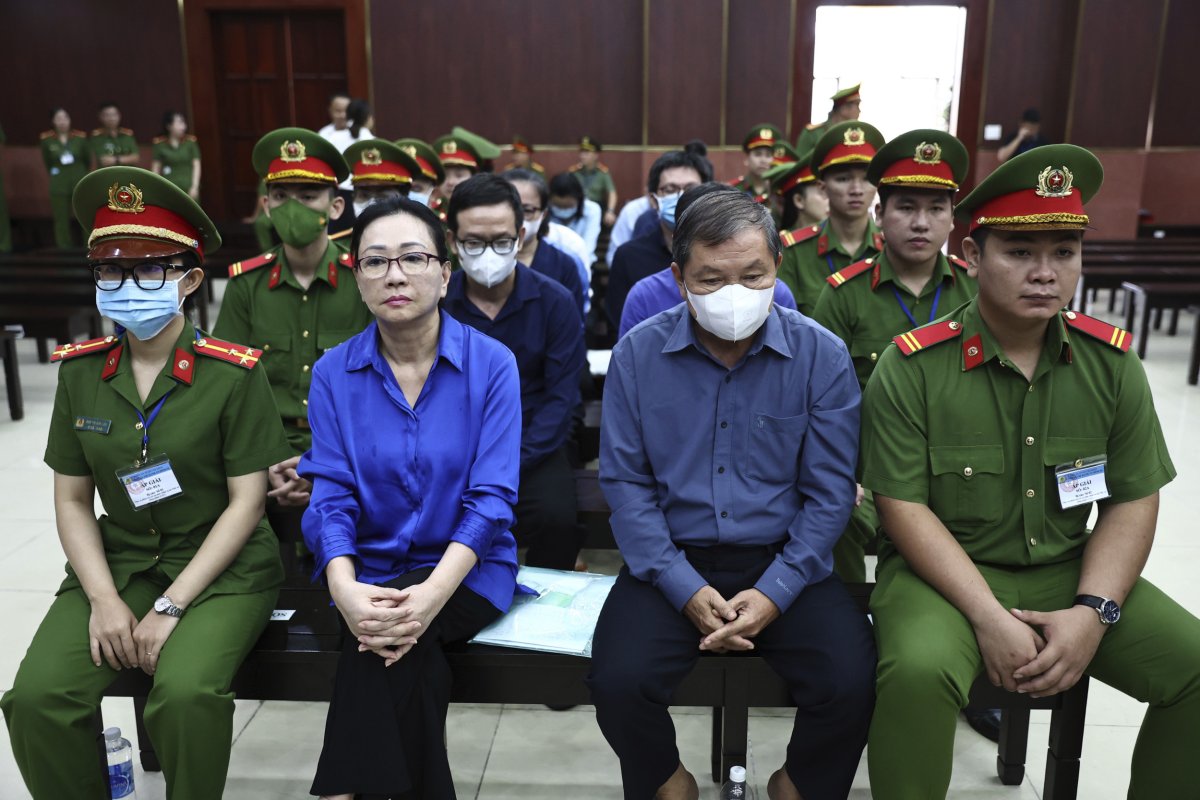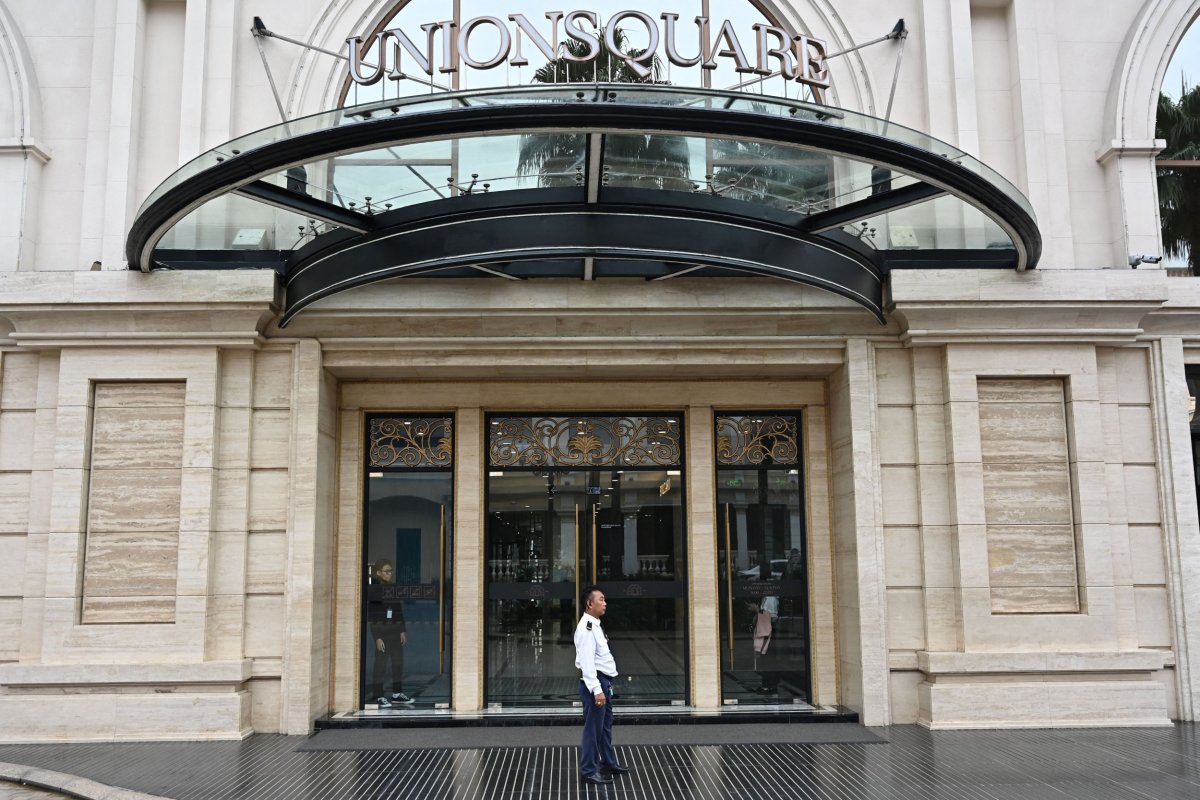A Vietnamese court has upheld the death sentence for real estate tycoon Truong My Lan, rejecting her appeal against convictions for embezzlement and bribery in a fraud case involving over $12 billion.
This amount represents nearly three percent of Vietnam’s 2022 GDP, marking the country’s largest recorded financial fraud.
Lan, 67, served as chairwoman of Van Thinh Phat Holdings Group. Between 2012 and 2022, she illicitly controlled the Saigon Joint Stock Commercial Bank (SCB), orchestrating approximately 2,500 loans that resulted in losses exceeding $27 billion.
The Ho Chi Minh City court noted that if Lan repays at least three-quarters of the misappropriated funds her death sentence could be commuted to life imprisonment.
However, her lawyers’ claims of partial repayment already having been made by Lan were dismissed due to unresolved legal issues concerning some of the seized properties, which hindered accurate valuation.

Tran Quynh/VNExpress via AP
‘Blazing Furnace’ Anti-Corruption Drive
Vietnam’s economy has boomed over the past decade as foreign investment poured in and the country became a preferred alternative to China while relations between Beijing and Washington deteriorated.
Lan’s arrest in October 2022 was a significant milestone in Vietnam’s intensified anti-corruption campaign, known as the “Blazing Furnace.”
President Võ Thị Ánh Xuân’s Communist party targeted high-level corruption across various sectors, aiming to restore public confidence, and attract foreign investment.
Her legal team highlighted mitigating factors, including her admission of guilt, expressions of remorse, and efforts to return a portion of the funds.
The tycoon said she feels, “pained due to the waste of national resources.”
Despite these arguments, the court pointed to the severe affect of her actions on the banking sector, public order, and societal trust. Under Vietnamese law, death sentences are subject to an extended legal process.
Lan is expected to seek further reviews or a presidential pardon.

Tran Quynh/VNExpress via AP
How Did Lan Misuse Her Wealth?
Established in 1992, Van Thinh Phat grew into one of Vietnam’s leading real estate firms, developing luxury residential buildings, offices, hotels, and shopping centers.
Lan played a pivotal role in the 2011 merger of SCB with two other lenders, a move coordinated with Vietnam’s central bank.
The court found that she exploited this merger to access SCB funds, approving thousands of loans to “ghost companies” that funneled money back to her.
The magnitude of the fraud led to the case being divided into two trials.
In October, Lan received an additional life sentence for illegally issuing bonds through four companies, raising $1.2 billion from nearly 36,000 investors.

NHAC NGUYEN/AFP via Getty Images
Public Trust Eroded by Vietnam’s Scandals
Prosecutors accused Lan of illegally raising $1.2 billion from nearly 36,000 investors through fraudulent bond issuances and siphoning off $18 billion through fraudulent schemes.
The court also found that she had moved more than $4.5 billion in and out of Vietnam through companies she controlled.
Vietnam, which imposes the death penalty for 14 crimes, including murder and drug trafficking, has handed down over 2,000 death sentences in the past decade, executing more than 400 individuals.
While these penalties are rare in financial crimes, the sheer scale of Lan’s fraud made this case an extraordinary exception.
This article includes reporting from The Associated Press


